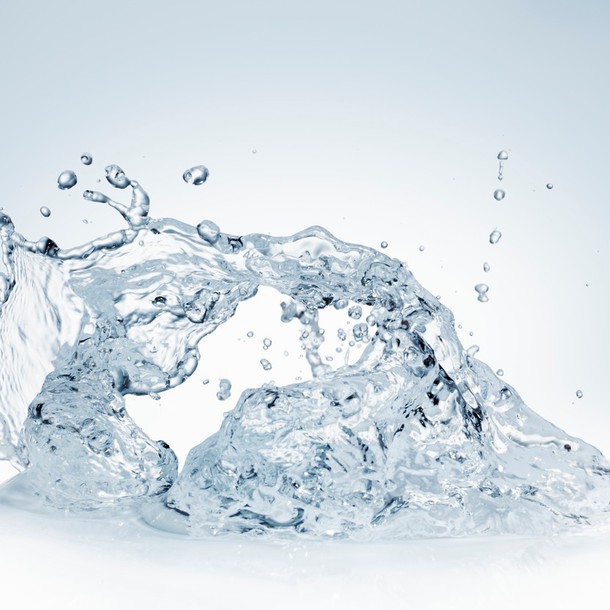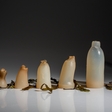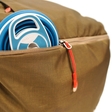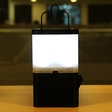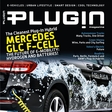
Now that's what we call water+.
Well, that was the idea, until advertising companies started to harness the potential of what we might call water+: water with something extra in it that makes an otherwise rational person choose to spend a dollar (or more) buying water in a nice plastic bottle, instead of spending, oh, around 1 cent to get the same amount of water from their tap and put it into a reusable container. What manner of spin can prompt a normal person to spend 100 times more (or occasionally far more than that) on an almost tasteless liquid that they could get essentially for free, with perhaps even less effort (no trip to the store required)?
First came a movement, in the form of warnings from doctors and subsequent media coverage, to let us all know that we are constantly dehydrated, or in danger of being so. Opinions, even among doctors, vary as to just how dehydrated we all are, but even the Mayo Clinic agrees that drinking up to 2 liters of water per day is optimal. That is a lot of water, and few actually drink that much, if they are not exercising (or haven't just eaten an entire packet of salted crackers). But these reports certainly stimulated water drinking, in vast quantities, and marketing executives took notice. But how to get consumers to buy expensive water? How to convince them that the store-bought water is better? Evian and San Pellegrino and Poland Spring sold quantities based on the idea that their water was from a particular pure, exotic source (or had added bubbles). This was nothing new. Slovenian bubbly bottled water, Radenska, naturally higher in mineral content than most water, has been the preferred beverage of popes and Habsburg emperors since the 18th century. But while water varies in its mineral content, what about something that could be added to it?

The first major force in marketing water+ was Glaceau Smartwater, created in 1996 by aluminum magnate, J. Darius Bikoff. The name (and Jennifer Aniston as spokesperson) was an ingenious stroke. "If I drink this, I will get smarter," we are encouraged to think. "And possibly look more like Jennifer Aniston." But here's the catch. Smartwater (like Coca-Cola's Dasani water) is just tap water that is purified by vapor distillation (it's boiled, the steam is collected and then recondensed) and electrolytes are added. Do electrolytes do anything? They do help you rehydrate faster, offering minerals that already exist in much water (calcium, magnesium, sodium, potassium), but this is mostly very smart marketing. Put purified tap water into a bottle, call it "smart," and folks will pay more than 100 times more than they would turning on their tap.
Coca-Cola bought Glaceau for $4.1 billion in 2007, and most of its value is down to Smartwater and Vitamin Water. Vitamin Water is another variation on water+, in that it is water with small amounts of added flavor and vitamins. For those who would like a bit more taste, flavored waters are basically watered-down juice. Studies have shown that taking vitamin supplements, unless you have a medical condition or are on a strict diet, do almost nothing—we get all the vitamins our bodies can absorb through normal eating and drinking. And yet we all reach for vitamins to strengthen our systems. It's really down to clever marketing (and having 50 Cent as an investor in Vitamin Water is part of that, benefitting from celebrity endorsement).

There is also a movement around "living water," like Ziva Voda from the Tunjice Wellness Resort in the mountains of Slovenia, one of seven locations around the world identified as having natural underground water with "living" attributes. This is water that has a similar composition to the water in the human body, which is meant to "maintain optimum energy of a person's biofield." Whether or not this sounds like your cup of tea (or water), Ziva Voda certainly tastes good, and their website shows some convincing microscopic photographs of normal tap water juxtaposed with "living water," and their compositions indeed look very different. This wellness resort also produces the Tungaj Transformer, a sphere that contains pulverized minerals that purports to cleanse ambient radiation produced by wifi routers, satellites and other pieces of digital technology. The water cleans the body, the transformer cleans the air.
In addition to the waters themselves, there is a movement to produce reusable bottles (because the environment does not need more disposable plastic). A Kickstarter bottle called HidrateMe links to your smartphone and keeps track of how much you drink, so you'll know if you've hit your daily quota. And the i9 Informed Water Bottle, featuring iGlass, is a new bottle containing a silicone "Poznik tag" which the inventors claim turns normal tap water into "informed" water, with properties similar to "living water." The tag contains, according to the website, "Several thousand carefully-selected sets of information (positive vibrations), such as pranas, mantras, music, thoughts, prayers, light, numbers, colors, etc." Using a Kirilian camera, the Berlin Institute of Electrophonics (which also conducted the research behind Ziva Voda and the Tungaj Transformer) measured a 20% "increase in activity of the human biofield" in those who drank water from i9 bottles. While I'm not entirely sure what that means, I did notice that the water in my i9 bottle never seems to get stale. And there is a funky test you can try at home by leaving a slice of apple in a water-filled i9 bottle, and a normal glass bottle. The apple slice rots in both, but to a far greater extent and far faster in the normal glass bottle. Not sure what that means in terms of the human body, but it is a visual demonstration that something is indeed going on.
It seems that we have three categories in the water+ department. There is water to which some form of purported goodness is mixed in, some added value, whether this is its exotic, pure source, the supplement of vitamins or electrolytes or flavors. There is water that is advertised as better for you in its found state, due to its naturally-occurring mineral count or "energy." And there are containers for water that are meant to enhance whatever you put into them. All of these products boast scientific research demonstrating that they are something more than what you get out of the tap. There are many places on earth where what comes from the tap is not wholesome (or where there are no taps), in which case bottled water makes absolute sense. But whether the + in water+ products is worth hundreds of times the cost is up to you, the individual consumer. If you're the sort who buys vitamin supplements (I am, despite believing the studies that tell me there is no benefit); if you're the sort who senses human biofields and energy points; if you reap benefit from the feel-good, consumer-empowerment factor of proactively choosing a product to consume, and deriving more enjoyment because it did not simply appear in your tap (I know I am), then these are indeed viable choices. They all taste good and are good for you. How much better they are for you than quality tap water is really the question, and a matter of some debate.
In researching for this article, I came across a fourth type of water+ that requires no debate at all. It's a project called Museum Water, available at the City Museum of Ljubljana, Slovenia as part of the European Green Capital 2016 project. It offers no evident health or taste bonus, no overt + to your water. It's simply a sturdy glass bottle with a small handprint impressed into the glass, as a grip. It comes empty—you fill it at the tap. It does not add magic to the water you drink, but it does add a bit of magic to the world. That small handprint belongs to a young boy called Yunan, who lives in the Nuba Mountains, in the Sudan—an area with terrible conflict, drought and where water of any sort is a precious commodity. Buying a bottle of Museum Water is a way to contribute to bringing drinkable water to the people of the Nuba Mountains.
